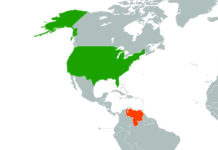
Governor Gavin Newsom recently vetoed Assembly Bill (AB) 2568, legislation aimed at allowing undocumented students to work on-campus jobs across the University of California (UC), California State and California Community College systems. This decision affects about 4,000 undocumented students across UC’s 10-campus system, many of whom lose opportunities that are critical for graduation and pursuing advanced studies.
In his rejection letter, Newsom pointed to the 1978 Immigration Reform and Control Act (IRCA): “It is critical that the courts address the legality of such a policy and the novel legal theory behind this legislation before proceeding.” Activists and legal scholars argue, however, that IRCA does not apply to states or state entities, meaning federal restrictions on the employment of undocumented individuals shouldn’t affect public universities. Protests erupted at UC Berkeley and UC Los Angeles campuses in response to the veto, with students and advocates saying that the law should not be an obstacle for state institutions.
This veto follows the suspension of UC Regents Policy 4407: Equitable Student Employment Opportunities in January 2024. The policy aimed to grant undocumented students employment rights on UC campuses. UC President Michael V. Drake stated that the policy was “not legally viable,” aligning with Newsom’s concerns. Newsom’s rejection of both AB 2568 and a separate bill supporting state-funded home loans for undocumented individuals has sparked criticism, with some arguing that these vetoes are politically calculated moves.
Undocumented students should have equal access to on-campus jobs, fellowships and internships. However, Newsom’s concerns aren’t entirely without merit — IRCA is a federal law, and the bill’s provisions would likely have been seen as a violation of this law. The legal relationship between federal and state laws is clear, with federal law superseding state law when conflicts arise. Although states have the ability to pass laws that extend beyond federal requirements, these laws cannot contradict federal mandates. The proposed legislation would likely contradict IRCA, making it subject to federal rejection.

This isn’t to say that Newsom’s veto was the right move, but rather that California’s approach to this legislation needs more legal refinement. Simply passing the bill again is not a viable option. The likelihood of this bill moving forward without federal support is slim, and, realistically, it may need to be challenged at higher level courts. Legal precedents regarding the employment of undocumented workers have historically not been favorable, making it even more challenging for California to proceed independently.
The main problem, however, is that without on-campus employment opportunities, undocumented students are forced to seek work off the books, often in unsafe conditions. These students are more vulnerable to labor exploitation with lower wages, longer work hours and higher risks of mistreatment. UC schools have historically supported undocumented students, even taking on the Trump administration in 2017 to protect undocumented students, yet their reluctance to take a firm stance on this issue now is troubling.
This issue has gained more urgency in recent years, particularly after the dismantling of Deferred Action for Childhood Arrivals (DACA). While some undocumented students were previously able to work under DACA, the program’s closure in 2021 has left no legal avenues for employment. This situation is not only unfair, but it also leaves undocumented students unable to support themselves through safe and legitimate work on campus.
The UC system should be advocating for these students, supporting their legal efforts and pushing for broader change. The legal theory behind AB 2568 is compelling — groups like the UCLA Opportunity for All Coalition argue that federal law does not explicitly bind state government entities unless explicitly stated. And UC President Drake’s concerns about federal penalties are valid, but they reflect a larger issue: fear.
The fear of losing federal funding or research grants should not outweigh the ethical and moral obligation to provide equal opportunities for all students, including those who are undocumented. California, with its progressive stance on immigration, should be leading the charge in creating equitable opportunities for undocumented students, rather than turning away from it.
The lawsuit filed earlier this month against the UC system, claiming discrimination, adds legal pressure for change. But as things stand, unless this issue is brought to the Supreme Court, the chances of real progress are slim.
At the end of the day, undocumented students deserve the same working experiences as their peers. The UC system and state leaders must find a way to support these students, pushing beyond the separate but equal policies that currently exist. It’s time for California and its universities to stand up for these students and stop hiding behind political fears. It’s not just a legal battle — it’s a moral one.






